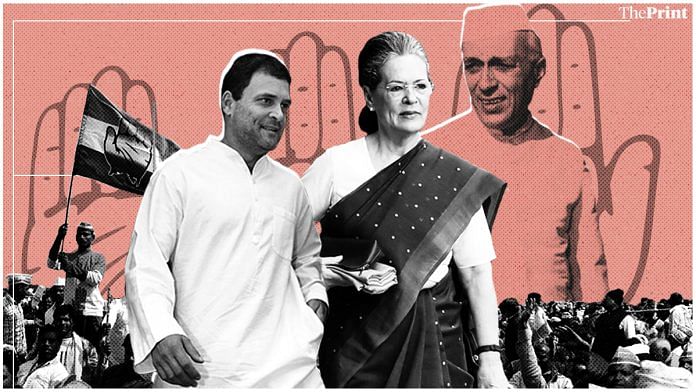The Narendra Modi government’s efforts toward ‘One Nation, One Election’, which means holding the Lok Sabha and assembly elections simultaneously, received a boost from a favourable report prepared by a committee headed by former President Ram NathKovind. The panel strongly recommends simultaneous elections and lists several reasons in favour of it. The Congress and other parties have opposed the idea without advancing sufficient, logically tenable reasons.
The Kovind-led committee said in its report that simultaneous elections will significantly reduce the expenses, which is a valid point. Every general election is costing the exchequer roughly Rs 500 crore, which is basically the taxpayers’ hard-earned money.
The opposition’s argument that ‘one nation, one election’ will go against the idea of federalism holds no water. This amounts to accusing the framers of Indian Constitution and Nehru as less sensitive or even insensitive to federal principles and aspirations. The Congress, which was the ruling party at the Centre and in several states, took pride in not only holding simultaneous elections but also at a much lower cost. The present-day Congress, which unfortunately is not a patch on its earlier avatar, has much to learn from its own history.
The first four Lok Sabha elections and state assembly elections were held simultaneously in 1952, 1957, 1962 and 1967. The death of first Prime Minister Jawaharlal Nehru in office and the 1965 War with Pakistan, followed by the second Prime Minister Lal Bahadur Shastri’s death in Tashkent under mysterious circumstances added new dimensions to Indian politics, heralding the advent of the era of Indira Gandhi. The split in the Congress party, dissolution of some state assemblies and the announcement of mid-term polls for the Lok Sabha in 1971 (14 months before it was due in March 1972) marked the beginning of a new process of de-linking assembly and Lok Sabha elections. The Kovind committee’s report seeks to end this aberration and reinstate the original system of simultaneous elections.
Also read: One nation, one election is BJP’s ‘brahmastra’. It wants state contests to be ‘Modi versus who’, too
Why opposition is wrong
Besides admissible official costs, elections involve large finances and big promises, what are now infamously called ‘freebies’ or revdi, which tend to impact the state’s finances adversely. While simultaneous elections may not fully and effectively address this issue, it can be part of a larger legal ‘one nation, one election’ framework limiting the expenses, actual and committed for future, during the polls. One factor that accounts for a large portion of the election budget is the electoral staff, which is drawn from the pool of government employees, bankers, and teachers in government institutes. Frequent elections mean enrolment of this workforce multiple times, thereby increasing the cost through additional wages and compensation, as well as infringing into their duty time and disrupting their regular duties. A single election spanning over, say, a month or so, will reduce salary payouts and also avoid frequent disruptions in their normal duty schedule.
Elections involve total and unhindered participation of the three main pillars of democracy—legislature, executive, and judiciary. Simultaneous elections will allow these agencies to settle down to their respective work faster and without disturbance. The police and law enforcement agencies will surely heave a sigh of relief in this process rather than being ‘on election duty’ frequently and throughout the year. Normal administrative work is put on hold as soon as the model code of conduct comes into force. Elections conducted in a shorter span and only once every five years will certainly reduce this intervention and ‘suspension of government work’, which greatly impacts industry and trading activities.
While rolling out the details of ‘one nation, one election’, the next government should seriously consider using modern technologies in election-related activities such as making the common voters’ list available to every voter in PDF format (so that it is tamper proof) instead of printed sheets for every polling booth. This will not only reduce the cost of printing, but also ensure transparency as the online list can be accessed by all parties and voters alike. In the 2024 Lok Sabha election, the Election Commission of India (ECI) is introducing online voting for voters above 85 years of age. If this works out to be a glitch-free system, then perhaps the same methodology can be extended to other voters as well, which will result in further reduction of election staff expenditure.
Implementing ‘one nation, one election’ would be as significant as the introduction of the Goods and Services Tax (GST) has been. Since elections are essentially an all-party activity, it would be a worthwhile initiative to hold wider consultations on the methodology, legality, and other nuances so as to forge consensus on this important decision, which will have far-reaching consequences.
While implementing this is the responsibility and prerogative of the central government, the entire process could be initiated by the ECI under a committee with representatives from all political parties and civil society. A wider consultation will ensure unanimity and smoother transition to a new electoral system, besides adequately answering the charge of ‘one nation, one election’ being a BJP agenda or that it is detrimental to the idea of federalism.
Seshadri Chari is the former editor of ‘Organiser’. He tweets @seshadrichari. Views are personal.
(Edited by Prashant)



